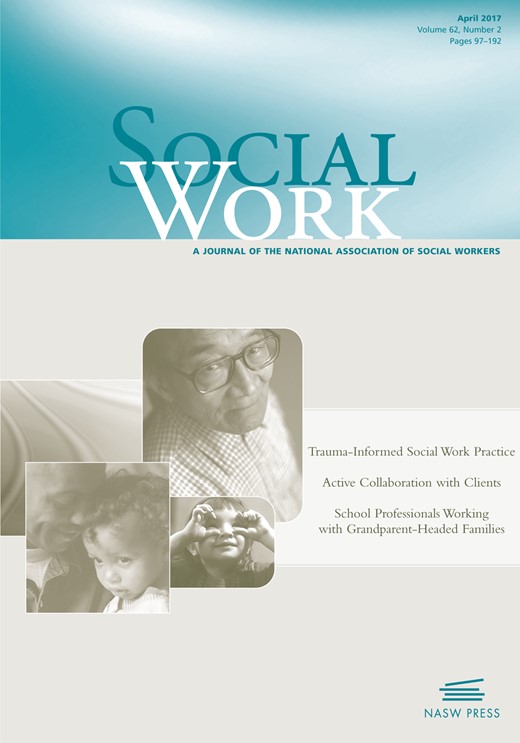-
Views
-
Cite
Cite
James Drisko, Active Collaboration with Clients: An Underemphasized but Vital Part of Evidence-Based Practice, Social Work, Volume 62, Issue 2, April 2017, Pages 114–121, https://doi.org/10.1093/sw/swx003
Close - Share Icon Share
Abstract
Evidence-based practice (EBP) is a widely recognized concept in contemporary social work practice. However, recent studies have shown that social workers do not understand EBP correctly. Standardized administrative approaches to implementing EBP have led to confusion about its core practice decision-making process. This collaborative process is the heart of EBP in direct social work practice. This article explores the EBP process and addresses a vital but often underemphasized step of EBP: active collaboration with the client in decision making. Active collaboration with the client is shown to be important in that it (a) is consistent with social work's professional values and ethics, (b) is consistent with patient-centered health care in the Patient Protection and Affordable Care Act and contemporary health care approaches, (c) is consistent with culturally competent practice, and (d) has empirical support for its beneficial impact. Correctly and fully understanding EBP in direct practice is important to improving social work practice and improving client outcomes.





